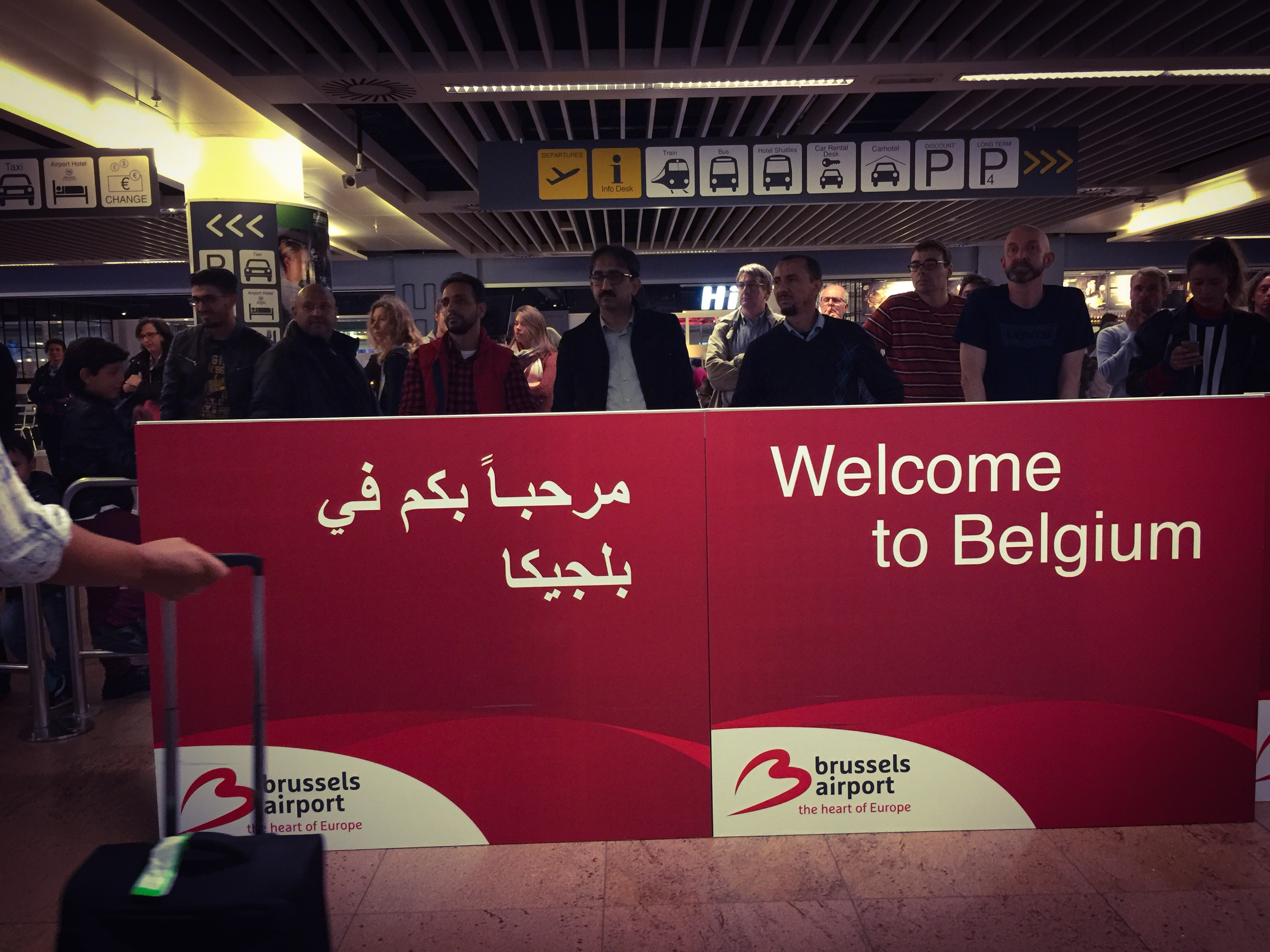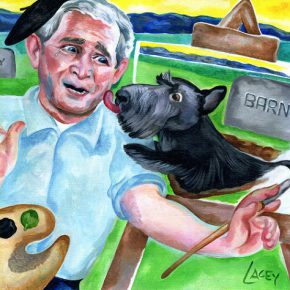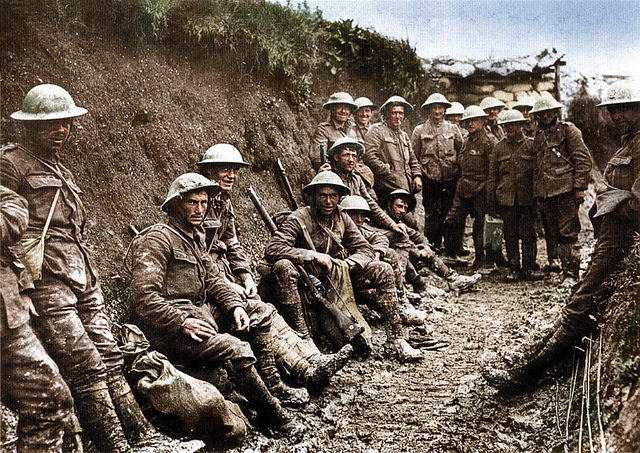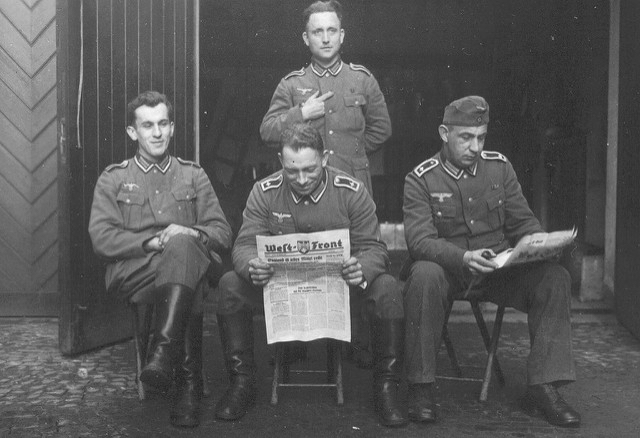After that tragic day, Brussels came more and more under the tyranny of the “iron fist” by which the Kaiser once boasted he would win the world-power unattained by other and far more capable enemies of peace. German soldiers swarmed through the streets, always hurrying to fulfil urgent business of their impatient leaders, who, on their way to overwhelm France, panted to thrust the sword of ruin deeper into hapless Belgium.
During those first weeks of the occupation, the city appeared obsessed by a restless mass of grey-robed energy. Every unit of the vast armies seemed infected by this passion. The streets fairly roared with frenzy-driven automobiles, enormous war-like things, sombre as mighty death-machines, mostly torpedo-shaped, driven, with entire disregard for the safety of pedestrians, through streets emptied of all traffic that might hamper their way.
The harsh or piercing cries of their horns never ceased; nor, when an officer of high rank was the occupant, the gay bugle notes, clear and triumphantly joyous, which so racked the aching nerves and hearts of every native. I think no one then in Brussels, who took the invasion to heart, will ever forget that bright, repeated melody so galling to those whose dear ones had perished in the unequal struggle.
Presently, it was heard no more, and only then, it seemed, did the stunned Belgians begin to awake and take some interest in life. They could do little for their wounded; for all hospitals, as well as public buildings, were seized by the enemy to house Germany’s mutilated slaves, or serve as resting-places for troops. All the comfort many of these latter enjoyed was a litter of straw laid on the floors of corridors.
I was obliged to step over their sleeping and evidently exhausted forms when, seeking a pass one day to go to our villa, ten miles from Brussels, I was erroneously led by a dull-witted soldier, who should not have admitted me, to the top floor of the post-office building. There I saw his commanding officer—who (it turned out) had nothing whatever to do with the giving of passes!
Though it was after midday, the men lay sleeping like animals all along the hallways, and their chief, roused from repose on a sofa in a separate room, was angrily struggling into his great boots when I was announced. His rage at being disturbed, but more at having me appear before he was ready to receive me with impressive dignity, was vented in a volley of abusive language hurled at the wretched subordinate.

Of me he took not the slightest notice until the boots were on, and during that interval of silence, shut up as I was alone with him in a place where, as I saw at once, I had no proper excuse for intruding, my one desire was to find some means of escape before he should notice me; for I expected anything but polite treatment at his hands.
“Belgium was given her chance to avoid war—she would not take it; that is not our fault!”
I longed to tell him a few unflattering truths, but the fact of being four stories above the street, with hundreds of armed men within call, forced me to limit my reply to: “That depends on how one understands fault; certainly, the Belgians were not at fault.”
“They were; they were siding with England and France. Stupid people! What will they gain by making an enemy of Germany? The Allies must yield to us; then where will Belgium be?”

“And if they do not yield?”
He laughed softly: There is no question of that! Are we not rushing on France already? In three weeks or less we shall be in Paris, and shortly after that we shall have England at our mercy.”
He eyed me thoughtfully before saying: “This war must prove Germany’s supremacy and put an end to all that!” The lower-class Belgian’s horror of the invaders grew daily, as more and more harrowing tales of their atrocities came to us from regions through which their armies were rushing.
Stories reached us of such unparalleled ugliness that many refused to credit them, and only when like crimes were committed in and about Brussels could we believe modern humanity capable of such deeds. These are now more or less known to the outer world; although doubtless many done in secret will never come to light, save when the victims, at the Last Judgment, add their voice of condemnation to those of innocent men, women, and children sent to sudden and ghastly death on the Lusitania.
But that revolting crime had not yet happened, to inflame neutral minds in Brussels, which, until convinced of those done in Belgium, were genuinely neutral. So unbiased, indeed, was the feeling that the violation of Belgium was looked on by some as an ugly action, but not wholly damning according to war morals.
Adapted from In the Prison City: Brussels 1914-1918, by JH Twells, Jr. Photographs courtesy of Joel Schalit. Published under a Creative Commons license.





